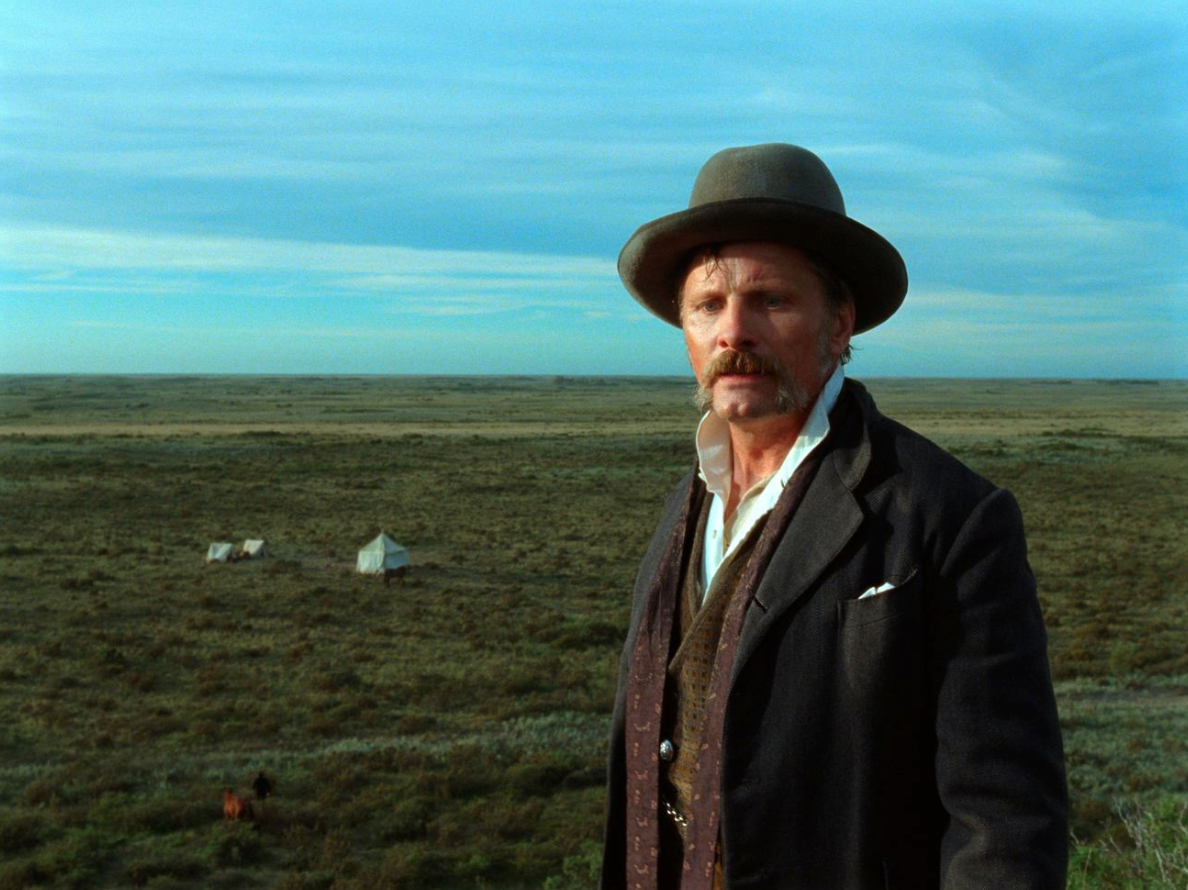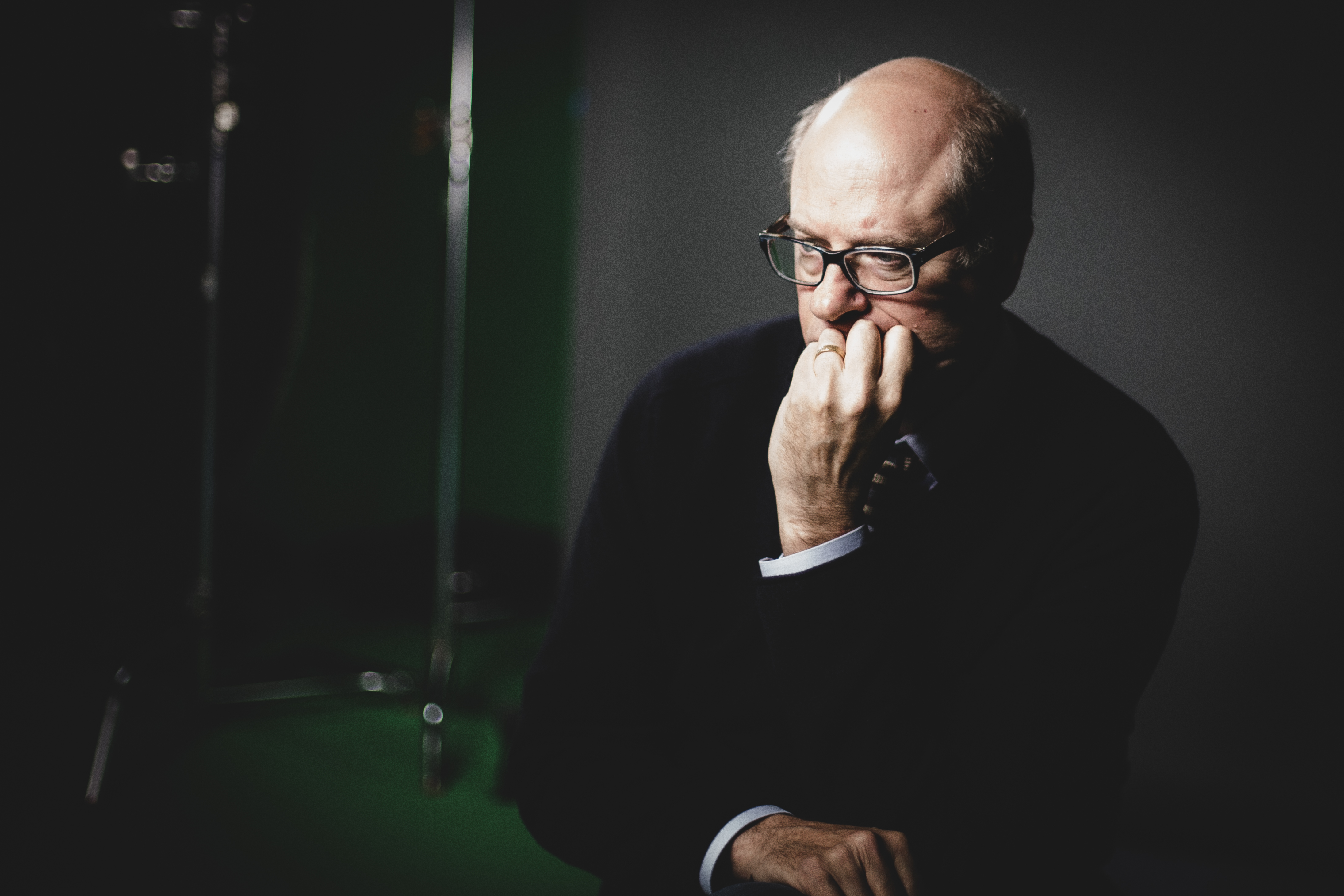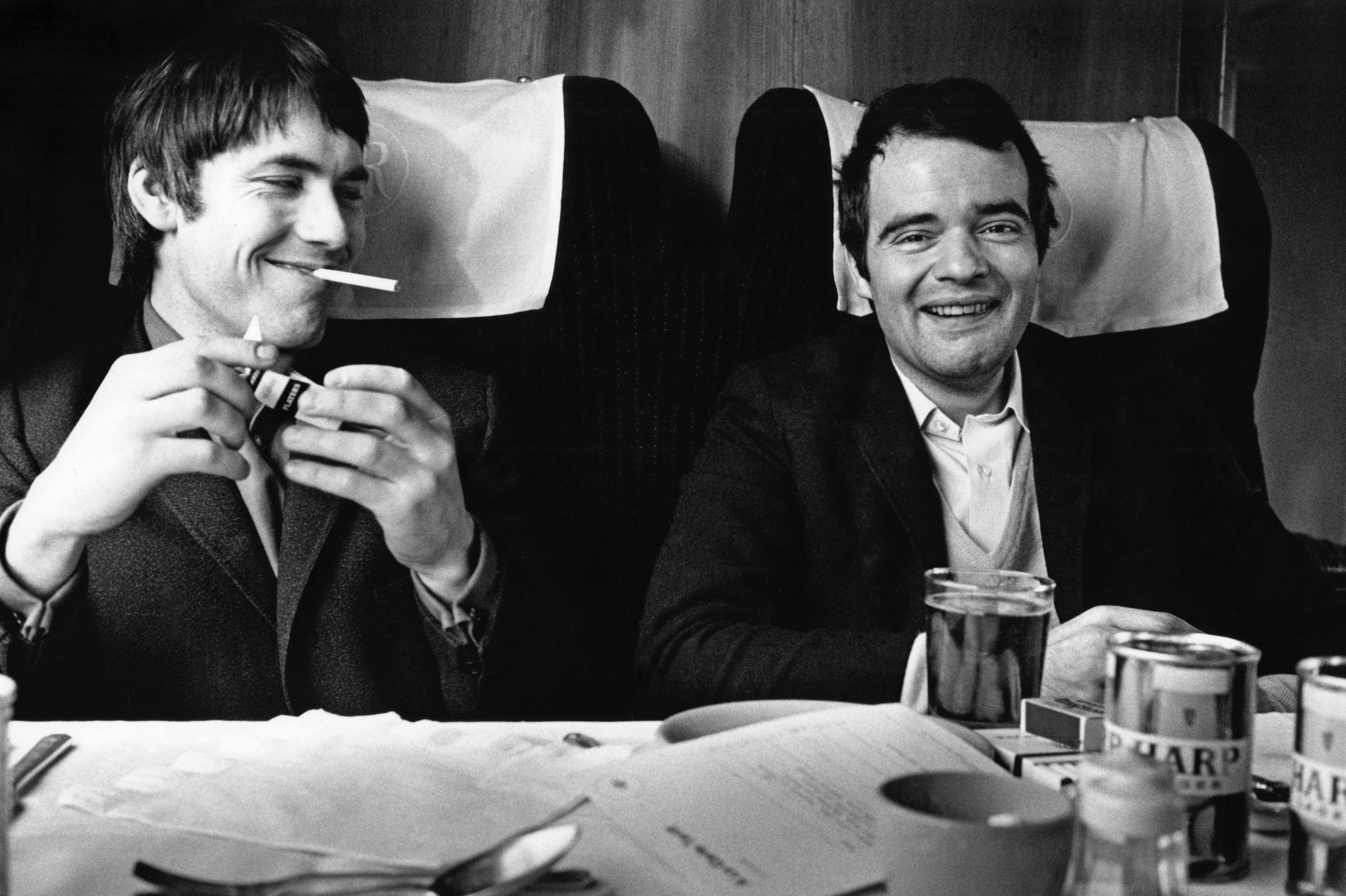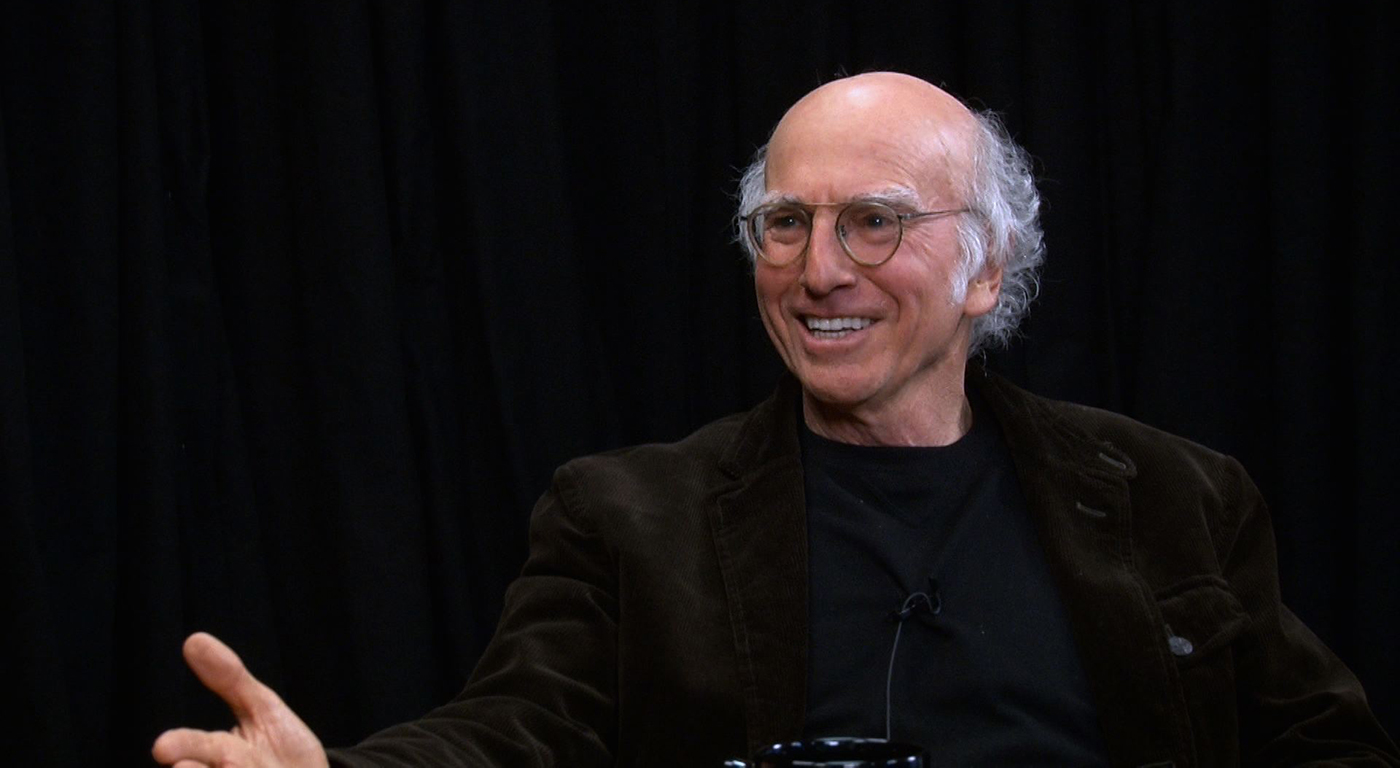Back in 2009, Argentine filmmaker Lisandro Alonso came to Seattle for a retrospective of his still-young career, including his new film Liverpool, which NWFF subsequently distributed in the U.S. Jauja is his first feature since that critical breakout, and his most commercial to date—though still with plenty of space for Alonso-ian mysteries.
The title, pronounced “How-ha,” refers to a legendary city of riches and happiness, but this is no treasure hunt. Set in the late 19th century, Jauja is a period piece that ostensibly takes on the genocide of Argentina’s colonial past, when soldiers were sent to exterminate the primitive “coconut heads.” Yet Alonso’s films are as much about men moving through the landscape, leaving behind the rules of civilization to become lost in the wilderness.
“We don’t belong here,” says the rueful Gunnar Dinesen (Viggo Mortensen), a Danish engineer working for the Argentine army. He’s not just talking about the wilds of Patagonia. More civilian than soldier, Dinesen is accompanied by his 15-year-old daughter Ingeborg (Viilbjørk Malling Agger), who becomes the object of unwanted attention from an insistent lieutenant. When she runs off with a young soldier into “enemy territory”—the vast, barren inland country where a guerrilla leader has become as much myth as adversary—Dinesen follows without waiting for a military escort. He’s awkward and out of place in this terrain, no less uncomfortable in the company of crude soldiers, showing the weariness of age in his graying beard and unhurried pace. It’s a physical vulnerability we don’t often see in Mortensen (now 56), and it is powerful.
Alonso isn’t one for exposition. Jauja leaves the coast for a grassy pampas where rocky nubs and spiky mountains punch through the earth like the skeleton of ages past. The spare dialogue gives way to a symphony of insects and lonely wind. Alonso often holds his long, leisurely shots after characters have left the frame—as if contemplating the transience of life. Some may find the device pretentious; I find it beautiful and haunting. Alonso grounds his film in the physical experiences of his characters and the texture of the moment, but in the final minutes the physical gives way to the metaphysical. Dinesen’s odyssey transforms into something closer to a dream or legend dredged up from the subconscious. For Alonso, it’s all part of the same story—more poem than frontier thriller, one that lingers long after the credits end.
film@seattleweekly.com
JAUJA Runs Fri., April 17–Thurs., April 23 at Northwest Film Forum. Not rated. 108 minutes.







